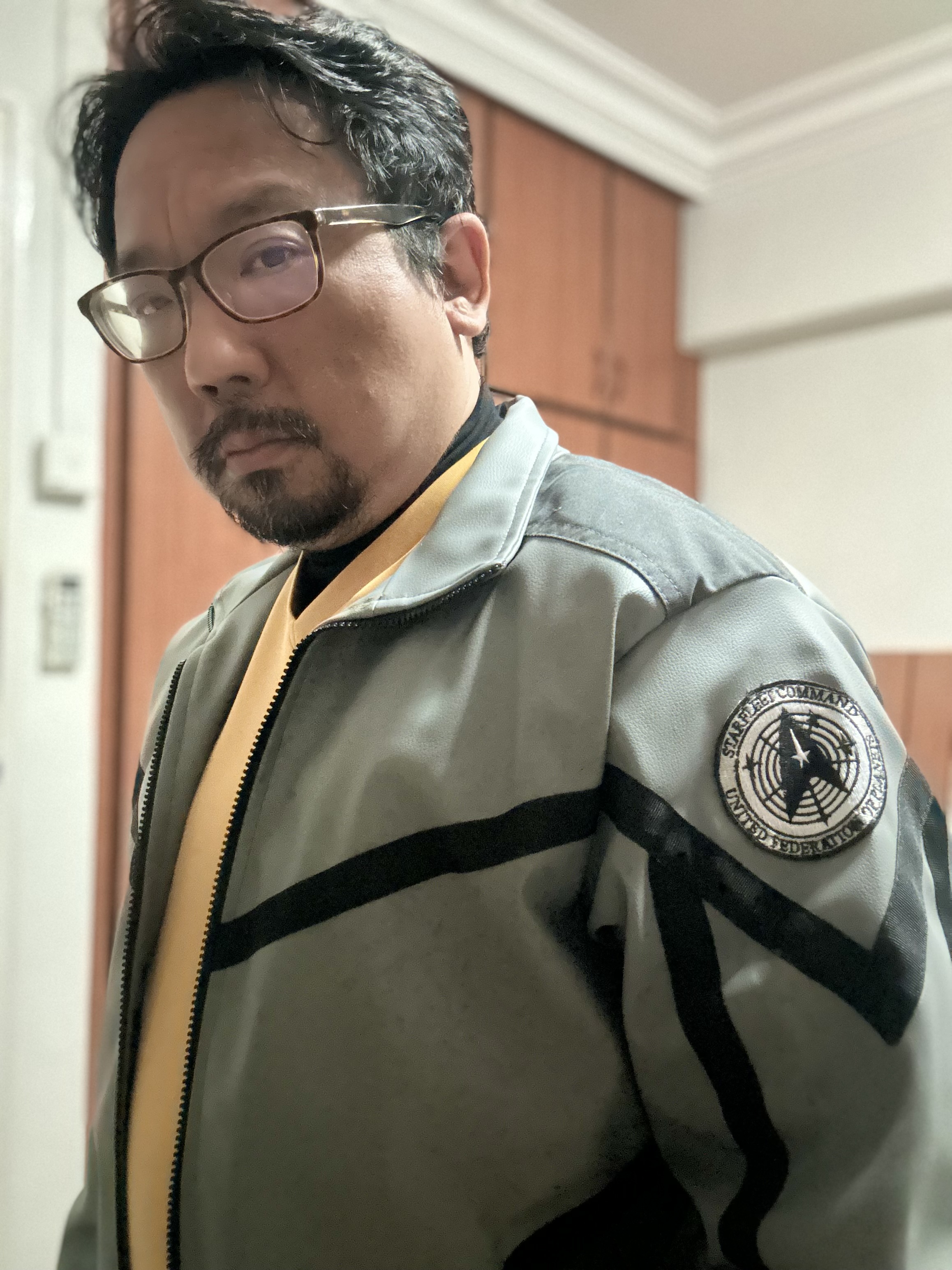The Stardate is 58795.1.
A megastructure is a large artificial object, in science fiction terms a massive construct in space, like a Dyson Sphere or a Ringworld, encircling a star. Corazonia, a Federation world, is of the latter variety, also known as a Dyson Ring. In DIS: “Rosetta”, Species 10-C had created a set of Dyson Rings around an extragalactic star. The word corazón means “heart” in Spanish.
Freeman’s concerns about Vexilon are well-founded. Star Trek doesn’t have a good track record with seemingly benevolent AIs that are designed to care for a population. Notable examples include TOS: “The Return of the Archons”, “The Apple”, “For the World is Hollow and I Have Touched the Sky”, “The Ultimate Computer”, DIS’s Control, and recently in LD we had AGIMUS and arguably Peanut Hamper.
The mountain that was flooded is named Inspiration Peak. The real world Inspiration Peak is a glacial feature in Minnesota.
One of Boimler’s away team is ENS Taylor, a Kzinti (TAS: “The Slaver Weapon”). Kzinti were originally created by Larry Niven for his Man-Kzin War stories, and were featured as antagonists in the TAS episode he penned. However, they were not used again (presumably because of copyright reasons) except in Task Force Games’ Starfleet Battles starship combat game until they were mentioned by Riker in PIC: “Nepenthe”. Kzinti crew have shown up in LD starting in LD: “Mugato, Gumato”.
The other two are a human Asian female, Meredith and a male member of the unnamed species LT Merp belongs to (LD: “Second Contact”, although this officer appeared in LD: “First First Contact”, and Boims in this episode calls him “Big Merp”).
While this is the first time we’ve seen the anomaly storage room, our heroes were assigned Anomaly Consolidation Duty in Season 2’s LD: “The Spy Humongous”, which went about as well as you’d expect.
What I can identify in the room is a lirpa (TOS: “Amok Time”), the Nomad probe (TOS: “The Changeling”), a Wadi chula board (DS9: “Move Along Home”), a Klingon bat’leth with a box that contains a ferret, and a Betazoid gift box (TNG: “Haven”). Rutherford points to a hat that apparently turned Billups into a church tower, and Tendi warns him away from a spider that would make his head fall off and skitter away (a reference to a scene from the John Carpenter movie The Thing where that exact thing happens?). There’s a device that looks like a Kataan probe (TNG: “The Inner Light”) but it had two prongs on each side instead of the usual one, so that threw me off.
Mariner misquotes the chula chant as “allamalay, lemon meringue”. The actual annoying phrasing is “Allamaraine, count to four. Allamaraine, then three more. Allamaraine, if you can see. Allamaraine, you’ll come with me.”
On a shelf behind her is the Romulan Cloaking Device from TOS: “The Enterprise Incident”, which is Nomad’s head stuck on one of the Arretan energy globes from TOS: “Return to Tomorrow”.
Isolinear optical chips are the successor to the solid data cartridges seen in TOS and the transparent carts seen in SNW. The primary software and data storage medium of Starfleet in the 24th Century, they were first seen in TNG: “The Naked Now”. The lieutenant giving orders to Tendi, Mariner and Rutherford is named Dirk.
The breathers are similar in design to that initially used by the landing party in TOS: “The Squire of Gothos” being a mask connected to a box-like air supply. The handheld scanners look like T88 diagnostic tools, a bunch of which were stolen by Rutherford and Tendi from the USS Vancouver (LD: “Cupid’s Errant Arrow”). The ferret in the anomaly room is apparently Billups’ pet Lancelot.
Vexilon’s original designers evolved into fifth-dimensional energy beings 6 million and 7 years ago. In our universe we are considered to have four dimensions: three observable spatial ones - length, width, height - and one temporal one, time, although we can only move freely in the first three.
As a deeper cut, Superman’s enemy Mr Mxyzptlk is said to be from the 5th Dimension, and Rod Serling stated that the Twilight Zone was a fifth dimension - the dimension of imagination.
We last saw ascension in LD: “Moist Vessel”, but there are a number of species in Star Trek that make the transition from corporeal to incorporeal, like the Thasians (TOS: “Charlie X”), Organians (TOS: “Errand of Mercy”), the Q (TNG: “Hide and Q”), the Zalkonians (TNG: “Transfigurations”), Kes (VOY: “The Gift”), Benjamin Sisko (DS9: “What You Leave Behind”). In “Moist Vessel”, it is said the Tamarians (TNG: “Darmok”) use florkas to aid ascension.
Billups makes an engineering joke about “unotronic” systems. In the 23rd Century, Richard Daystrom made the duotronic - as opposed to electronic - breakthrough that powered starship computers. Although his attempt at multitronics proved initially disastrous (TOS: “The Ultimate Computer”), multitronic systems eventually were used in technologies requiring the use and manipulation of memory or personality engrams in the 24th Century (DS9: “Extreme Measures”, VOY: “The Swarm”).
Freeman accidentally reboots Vexilon to factory settings, which basically sends him into a planetary re-genesis, similar to but less rapid than the effect created by the Genesis Device (ST II). Freeman wants Boims to reverse the retrofit so they can force a restart, before the anaerobic bacteria are released. Anaerobic bacteria (so called because they don’t require oxygen to survive) were the first known living organisms on Earth from which all life evolved. The urgency may be due to a concern that Vexilon might start removing oxygen from the atmosphere since that might harm the bacteria.
I wonder if T’Lyn’s use of the word “fascinating” is the same as Spock’s, who said he reserved its use for the unexpected. In other contexts, he claimed“interesting” would suffice (“The Squire of Gothos”).
The prank Mariner, Rutherford and Tendi rig up involves the chula game, a phaser, the Betazoid gift box and the Kataan probe. Dirk claims he got trapped in a chula game for a month as a kid, traumatizing him (this is a lie, as we find out later).
Tellarite slop jazz is the latest reference to Tellarite culture. In SNW: “Among the Lotus Eaters”, Ortegas jokes that Uhura stays up late translating Tellarite sonnets.
Dirk says Fats B’Zirtak overdosed on ketracel-white. “Fats” is a common jazz nickname, probably most famously applied to “Fats” Waller. Ketracel-white is the substance that Jem’Hadar are dependent on to survive (DS9: “The Abandoned”, et al.). There is a brand of hot sauce called “Ketracel White Hot” with a 17 million SHU rating (LD: “Grounded”).
Levels in chula are called shaps, as per “Move Along Home”. Rutherford exits the game the same way the DS9 crew did in the episode, by falling into a chasm.
It turns out the probe is a Kataan probe after all, or at least acts like one, since it downloads a whole life experience into the gift box. The gift box sobs, “I miss my wife.” In the simulated life in “The Inner Light”, Picard lived an entire life with a wife and son. The gift box’s line is also said by the Michael Sullivan hologram in LD: “Twovix”.
When Boimler dies, he sees the Black Mountain, which Shax described as a spiritual battleground the soul goes after death to battle three faceless apparitions of their father after which the surviving father makes them eat their own heart (LD: “We’ll Always Have Tom Paris”). Boims also sees the Cosmic Koala (“Moist Vessel”), which Steve Stevens also reported seeing sitting on the mountain when he was brain dead for ten minutes (LD: “Mining the Mind’s Mines”).
The Koala apparently says, “It’s not your time, Bradward Boimler,” in reverse. This scene is a riff on the extradimensional space called the Red Room from Twin Peaks, down to the design of the lamps and the pattern of the floors. The backwards dialogue references how the Red Room actors’ lines were spoken backwards then played forwards to produce an otherworldly intonation.
Ransom says “You never forget your first death.” As was said in “We’ll Always Have Tom Paris”, bridge officers are always coming back from the dead.

